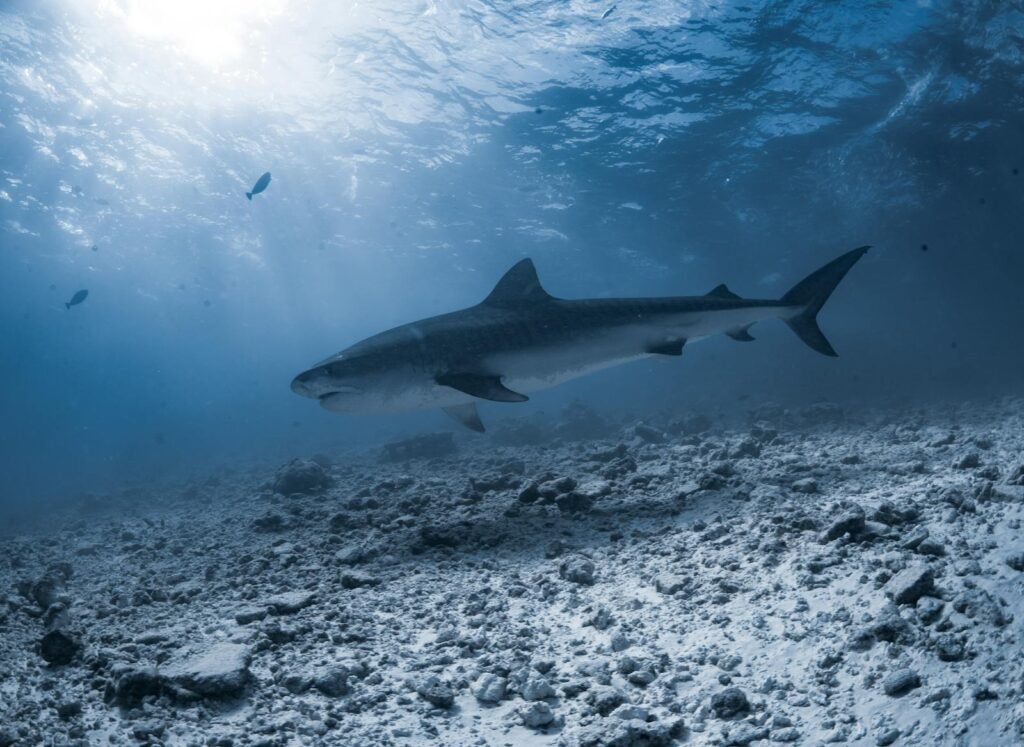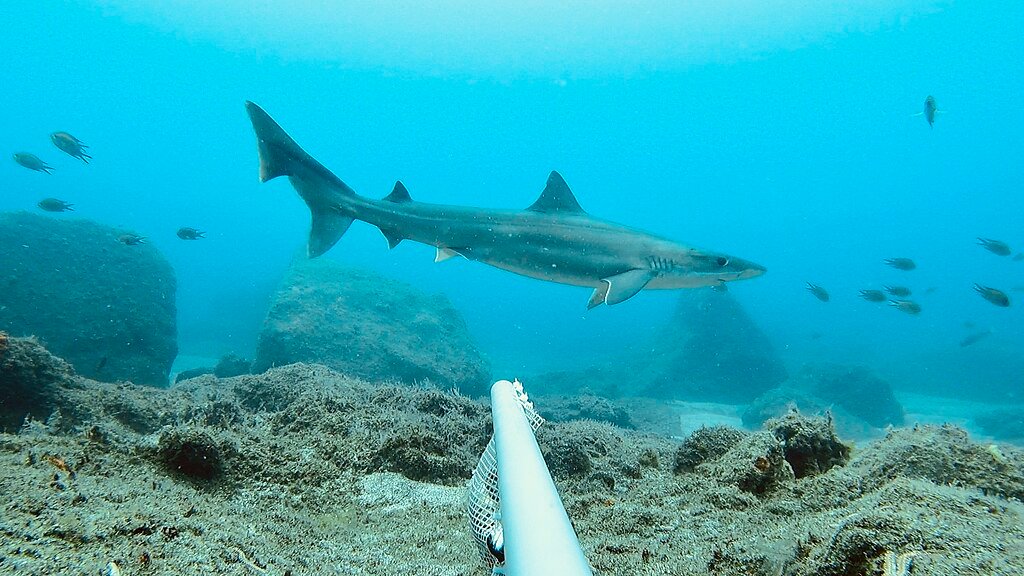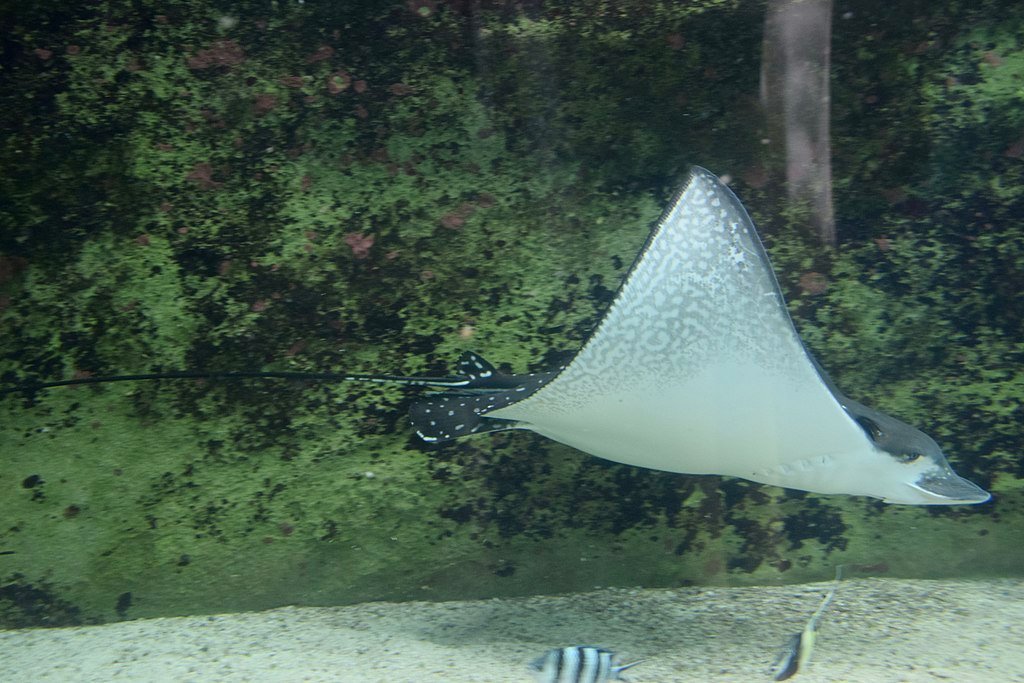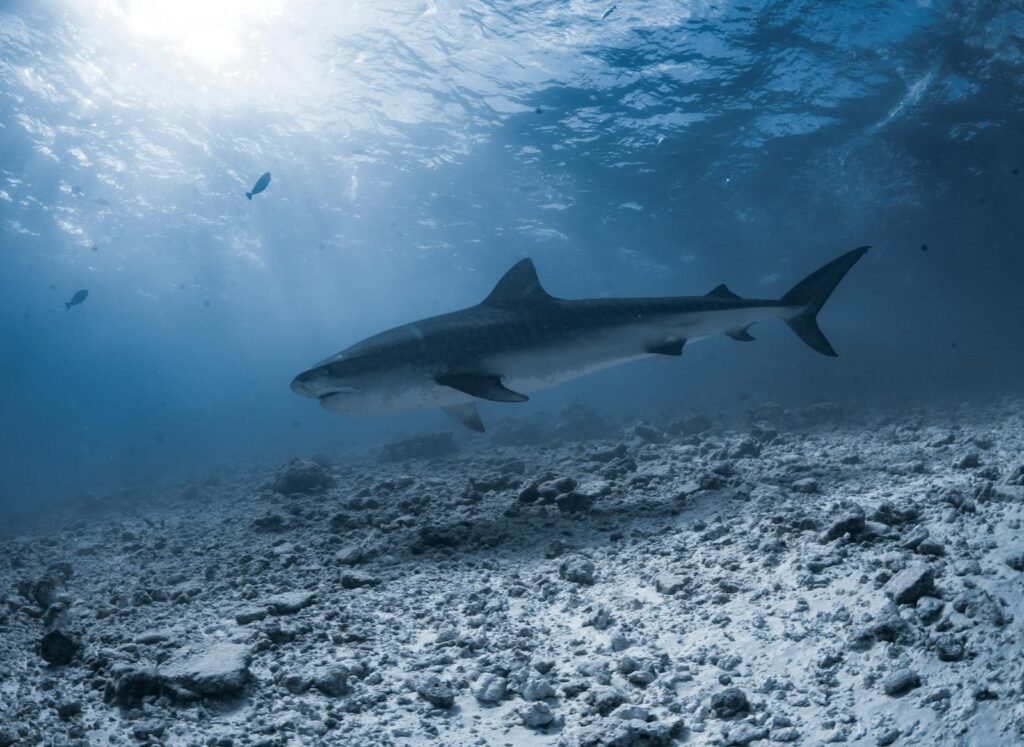Sharks have long been portrayed for centuries as the silent killers, sneaky, fast, and lethal. But what if they’re not quite so quiet as we’ve pictured? In a revolutionary research discovery, scientists have recorded sharks making noise for the first time, challenging century-old beliefs about these enigmatic predators.
The accidental findings, released in Royal Society Open Science, reveal that juvenile rig sharks (Mustelus lenticulatus) make sharp clicking noises when handled underwater. The behavior is surprising and raises interesting questions: Can sharks communicate? Is it a distress signal, a last resort to alert predators?
The Accidental Discovery That Rewrote Shark Science

Researchers at the University of Auckland’s Leigh Marine Laboratory stumbled upon this phenomenon while conducting routine behavioral experiments. When briefly handled underwater, all ten juvenile rig sharks in the study produced rapid, high-volume clicks some exceeding 155 decibels, comparable to a gunshot.
Lead author Carolin Nieder, a researcher at the Woods Hole Oceanographic Institution, noted that the clicks were most frequent during initial handling but tapered off as the sharks acclimated. “Maybe they realized they weren’t in mortal danger,” she speculated. In the wild, however, such sounds could serve as an acoustic escape tactic, momentarily stunning predators like fur seals.
How Do Sharks Make Noise Without Vocal Cords?

Unlike the majority of fish, sharks lack swim bladders air-filled organs responsible for contributing to sounds. Therefore, how exactly are these clicks actually generated?
MicroCT scans revealed no specialized sound-producing structures, but researchers proposed a fascinating theory: the sharks might be snapping their teeth. Rig sharks possess pavement-like dentition broad, tightly packed plates ideal for crushing crabs. When their jaws clamp shut, the force could generate sharp, percussive clicks.
However, without direct observation of jaw movements during sound production, the mechanism remains unconfirmed. “It’s still speculative,” Nieder admitted.
A Distress Signal or Just a Nervous Reaction?
Today’s question: Is a click purposeful communication, or a forced stress response?
About 70% of clicks coincided with calm, swaying body movements, while others occurred without visible motion. This inconsistency leaves room for debate.
Adrian Gutteridge, a shark biologist with the IUCN Shark Specialist Group (not involved in the study), cautions against jumping to conclusions. “It could be a defensive ‘go away’ signal, or simply a neurological reflex,” he told Live Science.
Can Other Sharks Hear These Clicks? Probably Not

Sharks have excellent low-frequency hearing (below 1 kilohertz), but the rig shark’s clicks register at much higher pitches meaning they likely aren’t communicating with each other.
Instead, the sounds may target predators with sharper high-frequency hearing, such as New Zealand fur seals. A sudden click could buy a juvenile shark precious seconds to flee.
Sharks Aren’t the Only Noisy Cartilaginous Fish

Rig sharks aren’t alone in their ability to produce sound. Several rays and skates close relatives of sharks are known to emit clicks when disturbed by divers. Some scientists believe that they are warning calls or distress signals.
Could more shark species be capable of sound production? Nieder thinks so. Future studies may investigate whether larger, more vocal species like great whites or hammerheads exhibit similar behaviors.
What This Discovery Means for Shark Research

This finding overturns the long-standing belief that sharks are silent hunters, opening new avenues for marine biology. If sharks do use sound whether for defense, communication, or another purpose it could reshape our understanding of their behavior.
For now, the mystery remains. As Gutteridge puts it: “We’ve only just scratched the surface.”
One thing is certain: The ocean just got a little noisier.
Final Thought: Are We Listening Closely Enough?

If sharks have been chatting away all these years, what else have we been oblivious to? With the advancements in technology, scientists might find even more hidden forms of underwater communication once again proving that there’s still much the ocean has to hide.
What do you think? Could shark “talk” be more common than we are aware?
Sources:

Jan loves Wildlife and Animals and is one of the founders of Animals Around The Globe. He holds an MSc in Finance & Economics and is a passionate PADI Open Water Diver. His favorite animals are Mountain Gorillas, Tigers, and Great White Sharks. He lived in South Africa, Germany, the USA, Ireland, Italy, China, and Australia. Before AATG, Jan worked for Google, Axel Springer, BMW and others.




